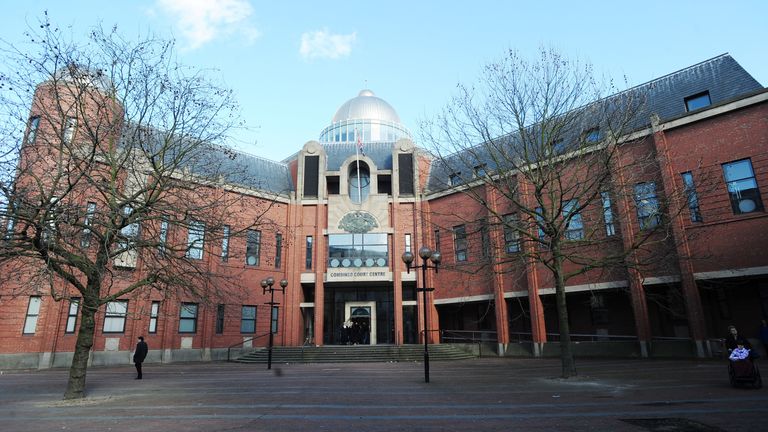COVID-19: ‘Grave concerns’ over risk from huge court backlog as cases mount
The criminal justice system in England and Wales is facing an “unprecedented and very serious” threat as the backlog in court cases continues to grow during the pandemic.
Four top inspectors have joined forces to express their “grave concerns” about the situation.
Justin Russell, chief inspector of probation, Sir Thomas Winsor, chief inspector of constabulary, Charlie Taylor, chief inspector of prisons, and Kevin McGinty, chief inspector of the Crown Prosecution Service (CPS), issued the warning on Tuesday ahead of being questioned by MPs on the matter later.
In a joint report, they spelt out how coronavirus has affected the work of police, prosecutors, prisons, probation and youth offending teams.
They concluded that the “unprecedented and very serious court backlogs constitute the greatest risk to criminal justice and the ripple effects across all agencies are profound”.
They pointed to the difficulties and lengthy delays at all stages of the criminal justice system that “benefit no-one and risk damage to many”.
According to the report, the number of ongoing cases in crown courts was 44% higher in December compared with February last year, while some cases are already being scheduled for 2022.
The criminal courts backlog stood at 457,518 as of November, the latest available figures from the Ministry of Justice show.
There were 53,950 cases outstanding in the crown courts and 403,568 outstanding in the magistrates’ courts.
According to the data, the overall number of outstanding criminal cases has fallen slightly since October.
But it is still about 100,000 higher than figures for February 2020, before the country first went into lockdown in March.
The report comes as the Bar Council, which represents around 17,000 barristers, called for a cash injection of an extra £55m to improve courts and increase capacity for hearings in a bid to cut the backlog.
Speaking on behalf of all four inspectorates, Mr Russell said: “Delays mean victims must wait longer for cases to be heard; some will withdraw support for prosecutions because they have lost faith in the process.
“Witnesses will find it difficult to recall events that took place many months ago, and prosecutors waste significant periods of time preparing for cases that do not go ahead.”
He said those accused of crimes also face delays in their opportunities to defend themselves, are being kept longer on remand, while prisoners continue to experience a “highly restrictive prison regime or experience delays in accessing rehabilitation programmes and support through probation services”.
Diana Fawcett, Victim Support’s chief executive, warned it could take “years” for the system to recover, and said the charity is “incredibly concerned that thousands of victims will fall through the gaps”.
The government said it was investing £450m to “boost recovery in the courts and deliver swifter justice”, insisting this was “already yielding results”.
Source: Read Full Article



